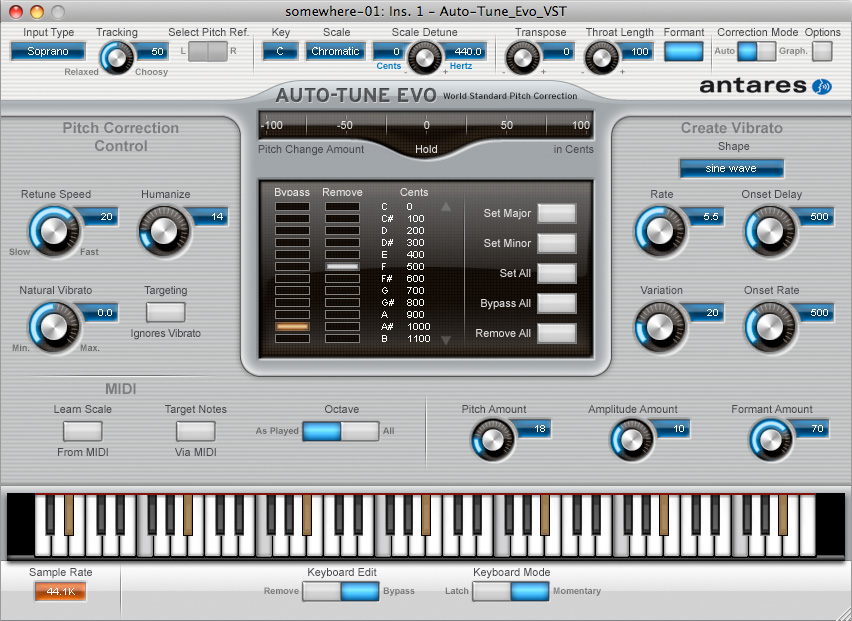2010 Trend That May One Day Lead To More Japanese Music Being Popular In America (But Probably Not): Tolerating Auto-Tune

Note: We take a break from our songs list to give out some more awards that might make you pissed.
Pity Auto-Tune. The pitch-correcting software became pop music’s boogeyman sometime late in the 2000s, joining “they don’t play instruments” and “all they do is rap about guns and women” as easy ways to avoid talking about why you don’t like certain types of music. Despite widespread love for the ever goofy T-Pain still going strong (fucking a mermaid will do that for ya), the actual tool he used to land on Andy Samberg’s yuck-yuck boat now stands as everything wrong with music today. Which…hey, it can be. Remember when tons of rappers started busting out Auto-Tune to try to hitch a ride on T-Pain’s Big Ass Chain? That sucked. And Auto-Tune has hurt live performances quite a bit, as many vocals that sounds awesome on record fail to live up in a performance.
Still, like all new additions to music, Auto-Tune can be used for good and artistic means. In Japan this rings especially true as plenty of performers…from J-Pop superstars to indie outfits scattered about the country…have done fascinating stuff with it. It isn’t all Auto-Tune, as other means of manipulation like vocoders also get used (I’ve made this mistake), but considering how many people screw the two up it’s not unreasonable to think it all gets brushed aside thanks to the “it’s that Auto-Tune shit again” mind thought. Perfume, the J-Pop group I’ll forever act as an apologist for, undergoes heavy vocal knob-twisting on nearly every track they’ve ever released…but instead of relying on it as a crutch, producer Yasutaka Nakata lets the digital touches stay ever-present, meshing up well with the group’s electro-heavy pop spazz outs. Smaller acts like Nuxx and √thumm also run their voices through a digi-effects machine. √thumm do it for reasons similar to Perfume (or, for that matter, other Nakata projects like Capsule and MEG) while Nuxx turn to technology to add emotional punch to their music – listen to the achingly longing “Kaede” and note how much sadder the computer ripples running through the vocals make it. Unfortunately, the backlash against Auto-Tune plays right into the stereotype of all Japanese music mostly being made by robots for robots playing Dance Dance Revolution. It’s a massive red flag to many.
Yet more established artists in America started using Auto-Tune in an artistic…and non-ironic way, Discovery and others take note…fashion that maybe, just maybe signals a world more accepting of this technology. Sufjan Stevens used the program multiple times on his bloated-but-fascinating Age Of Adz album, prompting his fans…who, I can assure you, would previously have been on the “this isn’t music” spectrum…to defend and eventually celebrate the decision. All sorts of artist’s started manipulating the hell out of their vocals…Pitchfork published a nice introduction to it. One song featured, Bon Iver’s “Woods” eventually mutated into Kanye West’s “Lost In The World” on his legitimate masterpiece My Beautiful Dark Twisted Fantasy which featured all sorts of instances of Auto-Tune.
(Aside: Let me make my one, probably totally insane claim of the year right now…Twisted Fantasy’s go for broke style of music, what with its VIP-list of featured guests and general musical grandeur, exists in the same territory Nakata and Perfume have been exploring for years. They sound very different but the general idea…make something big and make it so it will be loved by many…exists there.)
It’s a stretch but just imagine…maybe a world where Auto-Tune isn’t on the pop-music “Most Hated” list could lead to people more inclined to give Japanese music a shot. Probably not, but maybe Kanye can sample √thumm someday, that would be cool.